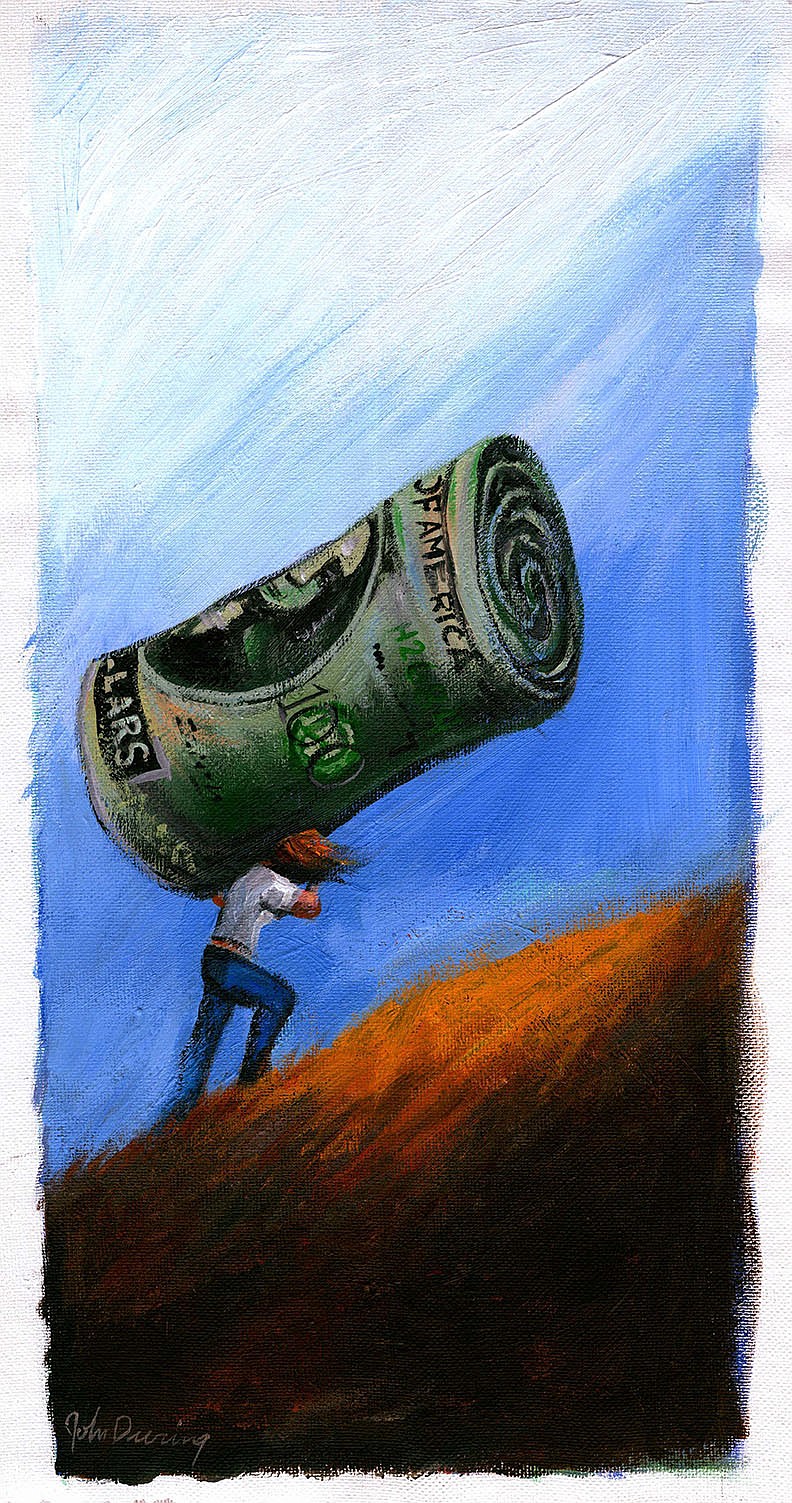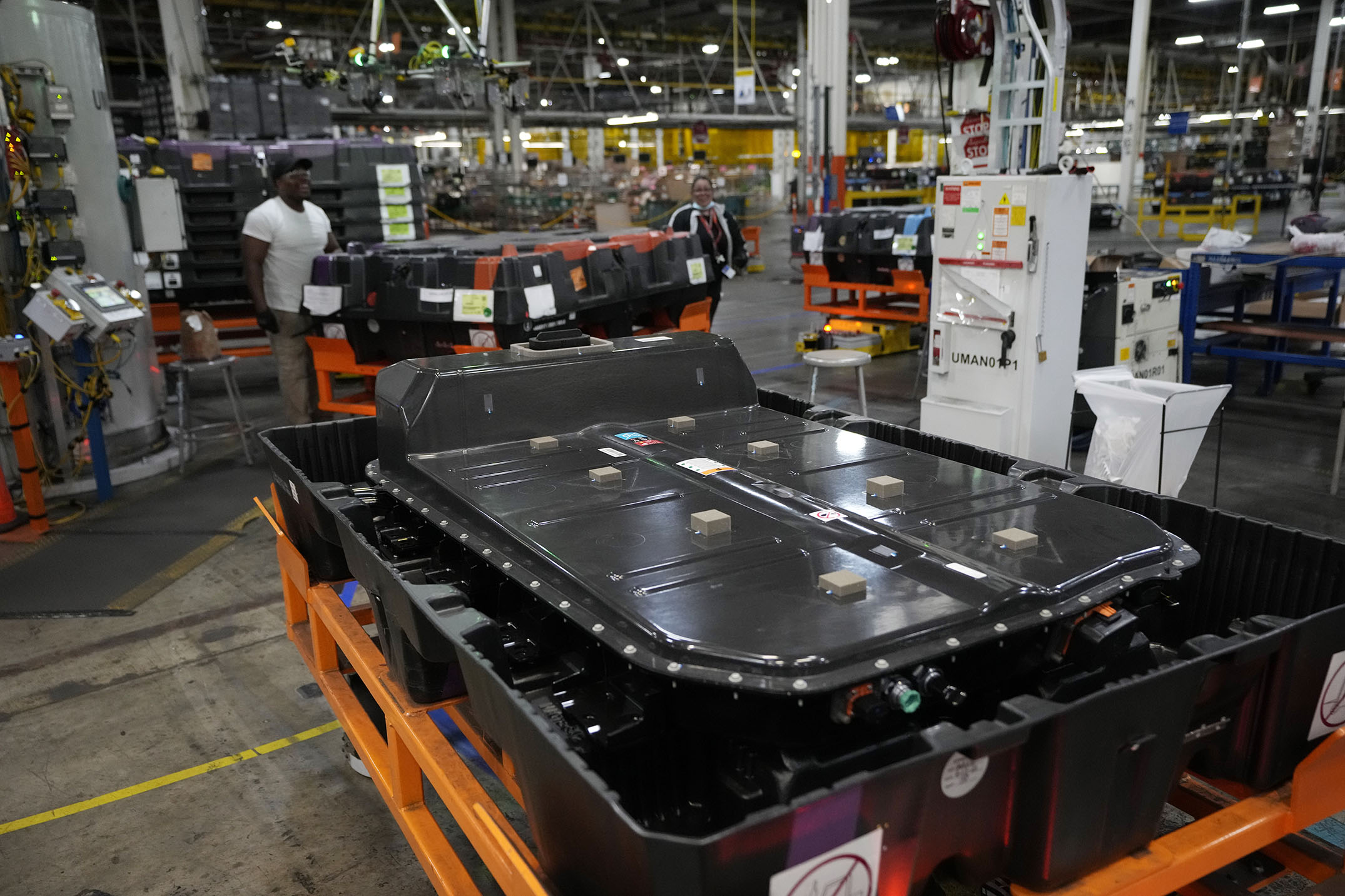"Nothing comes from nothing." This notion was first articulated, according to our historical record, by the pre-Socratic philosopher Parmenides of Elea and constitutes a refutation of the idea that the world was created ex nihilo, from nothing.
Only nothing can come from nothing. Some regard this statement as an early grasp toward what we now call the law of conservation of mass-energy, or the principle that, in a closed system, the amount of mass-energy must remain constant over time. Mass-energy can be neither created nor destroyed in such a system.
Analogous to this principle, I would like to argue for the recognition of a universal law that governs how human societies are organized. This I will call the Law of the Conservation of Burden. Similar to principles of conservation in physics, this law proposes that burden is a fundamental property of human existence, one that can never be eliminated, only redistributed.
For example, you may wish to be alleviated of the chore of cleaning house, and provided you have sufficient funds for the purposes, you can hire a housekeeper. You have not eliminated the burden of dusting shelves and mopping floors; rather, you have merely used your resources to offload that burden onto someone else.
Similarly, if you don't want to cook dinner tonight, you might pay the staff at the local Chinese restaurant to undertake the burden of providing you with dumplings and lo mein.
Assuming that you are remunerating these people fairly, there is nothing immoral in shifting the burden onto them. But we must recognize that the amount of burden nonetheless remains constant, and that not all relationships that involve a shifting of this burden are equitable or just.
Every alleged time-saving innovation constitutes simply a redistribution of burden. In their early days, frozen foods, especially the Swanson TV
dinner, were regarded as a means of saving time for people, especially overburdened housewives. (Many husbands reportedly wrote to the Swanson company to complain about being provided TV dinners rather than home-cooked meals.)
In her 2011 paper "Defrosting Dinner: The Evolution of Frozen Meals in America," Lauren Gust pointed out, "Although the convenience of frozen dinners greatly reduces the labor that we put into a meal, this labor is not 'lost' so much as reallocated." After all, frozen dinners, quick though they might be to heat up, are manufactured food items and thus require a vast infrastructure to create, from the harvesting and processing of the food itself to the production of the cardboard and plastic film necessary for packaging, and finally to the distribution and storage at appropriate temperatures, not to mention the generation of all the energy used at each stage.
The Law of Conservation of Burden is somewhat similar to Tesler's Law of the Conservation of Complexity, conceived by Xerox PARC employee Larry Tesler in the 1980s: to wit, for any system, there is a certain amount of complexity which cannot be reduced. When one reaches that point, one can only shift the burden of complexity around. That is to say, at some point, you cannot make your product easier to use but, instead, have to require your customers to spend a little extra time learning how to use said product themselves.
But there nonetheless persists the belief that, no, we can reduce complexity, we can reduce burden. Although we know that a perpetual motion machine would violate multiple laws of thermodynamics, we still dream of achieving it. And then everything will be fine. We just have to trust the plan, trust the spirit of progress.
In our present day, there is much hand-wringing about how to reduce our collective "footprint," or the burden we place upon the biosphere. Many people have pitched electric cars, among other innovations, as a solution that might limit our footprint, but that too is merely a shifting of the burden.
First, the manufacture of batteries for electric cars requires a number of rare elements, the mining of which is destroying entire ecosystems across the world. Some have even proposed seafloor mining, meaning that serious consideration is being given to the destruction of undersea habitat, all in the name of saving the environment.
Second, electric cars are heavier due to those batteries. The battery of the Audi e-tron SUV alone weighs more than 1,500 pounds, or about 60 percent of the whole weight of the Honda Fit that I drive. In 2023, the Institution of Structural Engineers, based in London, updated their guidelines for the construction of parking garages to take into account the proliferation of much heavier electric vehicles, and many such buildings constructed according to earlier guidelines are exhibiting signs of structural stress due to all these large electric cars. The increased weight of electric cars also means that car accidents are increasingly deadly.
Burden is constant. But much of human culture has been dedicated to the proposition that there were times in the past with less burden--and we need to work hard to recapture that.
People have a definite nostalgia for time periods in which they did not live, be it the Middle Ages, Ancient Rome, Jane Austen's England, et cetera. Surely, oh surely, whatever burdens with which those people lived were less than the ones we face in these waning days of Babylon.
But people aren't just nostalgic for a particular time period; they are nostalgic for belonging to a particular class at that time. No one who pines about the medieval "Age of Faith" wants to live the life of a leper with a bell around his neck warning all nearby to stay away. No one who sings longingly about how "old times there are not forgotten" wants to live the life of a slave in Dixie; they want to look away from that reality. People who romanticize the past are romanticizing a particular arrangement of the burden then present.
Indeed, much of the rhetoric of incels and other radical conservatives centers upon a romanticized past in which women were entirely dependent upon men and thus had to live in sexually exclusive, economically submissive relationships. As scholar Silvia Federici argued in her 2004 book "Caliban and the Witch," peasant women in the Middle Ages were able to exert some level of independence in their lives, but the status of women was reduced with the enclosure of the commons and the driving of peasant families off their land and into the emerging factories in the cities. With men working all day for a pittance, women's sphere was reduced to the household, and she was transformed into a servant of her husband (rather than a partner), taking on all those burdens, as a form of compensation for his labors. Incels and their ilk believe that the weight of burden should still fall this way.
But there are also those people who, rather than trying to shift their burdens upon others, take upon themselves all the burdens necessary for maintaining a life--people who live off the grid. We all like to think that we can make it independently, but Homo sapiens did not evolve with individuals living in isolation, and it takes a lot more energy today to live a life we would describe as basic for a human being.
The PBS reality TV series "Frontier House" showcased this reality, following three families on separate Montana homesteads from June to October 2001 to see if they could produce what was needed, from their own labor, to survive the forthcoming winter.
At the end of the experiment, only one of the families, the youngest, was judged as capable of surviving winter both physically and psychologically. The 2015 Robert Eggers movie "The Witch" explores similar themes, following a New England family, banished from their community due to the father's religious views, as they attempt to live in isolation at the edge of the wilderness. In this movie, you see a family that is perpetually one torn muscle, one malfunctioning musket, away from starvation. Taking on all the burden for yourself is to risk everything.
The key to our survival as a species on this planet is neither the invention of something that will ultimately alleviate burden, nor the projection of a "Big Rock Candy Mountain" utopia in which all labors shall be lifted, but an honest discussion about how much burden we are willing to take on collectively, and how that burden is divided among us.
For example, if we want to enjoy driving our own automobiles rather than use mass transit systems, then we must accept the burden of traffic, air pollution, outrageous car insurance rates, and the collective cost of highways and bridges. If, for whatever reason, we want to maintain the existence of fake electronic currencies like Bitcoin, then we must accept the burden of massive data centers that destroy the quality of life wherever they are placed. If we want to enjoy the next cocktail, we must accept the hangover. There is no getting around this.
Politics is simply the art of negotiating how much and what kinds of burden we might collectively tolerate and where the burden for our existence will lie heaviest. The problem with our politics is simply that most of the people who bear the greatest burdens didn't get a voice in the matter. People living near Greenbrier, Ark., for example, sure didn't get a vote on whether they wanted their natural environment wrecked with the high whine of data centers so that idiots across the world could purchase Bored Ape Yacht Club NFTs. The same with people living on the low-lying islands of the Pacific, who didn't get a vote on suffering the inundation of the homelands so that Americans could fly to Italy for the summer.
It may be the case that, once we consider what we want from life, and factor that against what burdens we--individually and collectively--are willing to bear, we might need to restructure, rather radically, our human societies. We desperately want to imagine that the cost of our lifestyles is nothing. "Look, this AI program can generate whatever image I want, and it costs nothing!"
No, the costs, the burdens, are merely hidden from you. Nothing, as Parmenides observed, can only come from nothing. You and I exist in this world. We are something. And that means that we have burdens we must all carry.
Guy Lancaster is the editor of the online Encyclopedia of Arkansas, a project of the Central Arkansas Library System.

